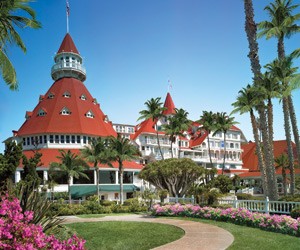Two years ago, corporate executives wouldn’t have dreamed of stepping foot inside a luxury hotel. Today, the landscape looks vastly different.
"It’s been a wild rollercoaster," says hospitality industry analyst Jan Freitag, vice president of global development for STR Global in Hendersonville, Tenn. "While the global and U.S. economy had its meltdown, the upper end of the market was hit disproportionally hard and went way down. But now it is way up again."
The numbers tell the story. According to Freitag, occupancy rates at luxury hotels dropped 8 percent in 2009 from 2008, but then increased 6.9 percent in 2010 from 2009 levels.
Although meetings may be coming back to five-star properties, rates are still hovering around mid-recession levels. Freitag says rates declined by a whopping 16.5 percent in 2009 over 2008. Although things are starting to stabilize, Freitag reports only a 1.9 percent increase in rates in 2010 over 2009, which means hotels have a long way to go.
"We have to fight against the rate decrease of 16.5 percent—it is going to take a while," Freitag says.
Perception Fading
Fading perception issues are the root of the rebounding occupancy levels at luxury hotels.
"The AIG Effect has drawn its last breath and is now dead," says Kelly Wood, vice president of global sales organization-North America for The Ritz-Carlton Hotel Company. "People are more comfortable these days. [Since 2008,] there has been so much information and education from the hospitality industry out to the public with regard to the power of incentive programs, that we are seeing an uptick in business now."
Venues with a View: Ion & WP24 at L.A. Live
Freitag says business executives no longer see luxury as a "four-letter word," realizing that cutbacks in travel were not sustainable and that there is a "certain strata of executive that needs amenities, safety, security and general representation when they travel, and luxury hotels provide that."
Denver-based Scott Douglas, director of Motum, LLC, a marketing consulting firm, recently choose a Four Seasons hotel for the site of a meeting.
"Some eyebrows were raised at that choice, but once we were there, no one doubted that we made the right choice," he says. "I really feel that within the past eight months, the perception of over-spending has changed. For our clients, we are willing to entertain luxury properties when it makes sense, even if the rates are a little higher.
"It isn’t just about rates, it is about providing that unique and memorable experience," he continues. "Plus, for an extra $1,500 per night, the experience and intangible service makes a huge difference."
Perception issues seem to still be a problem for planners such as Marilyn Froggatt, vice president of sales for JNR Incorporated, a meeting planning company in Irvine, Calif., who says the term ‘luxury’ needs to be reexamined in the industry.
"In the past, ‘luxury’ had a positive connotation," she says. "But after the AIG effect, it became a political word."
Even so, Froggatt says she never stopped looking at high-end properties and is happy to see an uptick of interest in such venues of late.
"I’d say that just now things are beginning to resurge," she notes. "We started receiving RFPs in October 2010. Things that had been on hold for three years are getting going again. Confidence is returning and there is a whole lot of need. Companies are realizing the importance of these programs."
Current Trends
In the post-recession era, meetings are emerging in a radically altered state.
"Meetings look a lot different than they did back in 2007," says Barry Brown, director of sales and marketing for Hotel del Coronado in Coronado, Calif. "There is a lot more work and a lot less play."
Ritz-Carlton’s Wood agrees, adding that many luxury-bound meetings are interested in incorporating a CSR component.
"If you are going to do a team-building activity, you are making it meaningful," she says. "There is still golf and spa, but many organizations are looking for an alternative—anything from planting grass in sand dunes in Miami to helping improve the well-being of children."
Where Wood sees some interest in golf and spa, Brown says such activities are more often cut out of itineraries altogether, left as a personal expense for each meeting attendee.
Beyond meeting logistics, securing business has become an Olympic sport for hoteliers.
"The number of leads we are getting may be up, but there is much more work that goes into getting a piece of business than back in 2006 and 2007," says Danielle Lucas Knight, associate director of sales for Hotel 1000 in Seattle. "Right now, planners are getting proposals from three to five hotels for every meeting. You really have to show your value in regard to competition."
In addition, Knight says planners are no longer only concerned with room rates. Nowadays, they want to know the intricacies of the hotel’s overall package offering.
"Companies have been burned by going after the best price," she adds.
Hotel del Coronado’s Brown agrees, saying it is more difficult than ever to secure business.
"Planners used to be concerned with ROI—what I’m going to get out of it," he says. "Now we are hearing about return on objectives. When our salespeople are meeting with planners, they don’t want to just know about food costs and room rates—everything has become much more collaborative.
"We are now helping them with meeting space flow, the right kind of meeting space for a specific event, what the food will be like, etc.," he continues. "These days, details are planned way in advance, almost prior to booking."
Today’s meeting is also synonymous with short lead times—sometimes shockingly short.
"Right now, our average lead time is a few days; that is for a 30-to-40-room-per-night meeting," Knight says.
Austin Watkins, director of marketing at the Four Seasons Los Angeles at Beverly Hills, cites somewhat longer leads.
"In late February, we received group requests for the month of March," he says. "Beyond a shorter booking window, we see shorter lengths of stays, smaller room blocks and less food and beverage."
Client Mix
During tough times, many luxury properties welcomed group business they once ignored, in order to help the bottom line. But now that their traditional corporate market is coming back, are government and association meetings thrown to the wayside?
"Not exactly," Hotel del Coronado’s Brown says. "Getting into new clientele is a tricky thing and a slippery slope. During tough times, we took a few pieces of government business, but we were very clear in explaining that this may be their one opportunity to stay at the Del. We were clear up front. There is no point in luring someone just to disappoint them next year."
At The Ritz-Carlton Hotel Company, Wood says there is always a need for any type of business, and government, sport and association groups are appreciated even in a healthy economy (especially in shoulder seasons). She adds that several organizations tried the brand for the first time during the recession and "now that they have experienced it, they love it and are trying to find ways to stay with us."
Future Forecast
Four Seasons’ Watkins predicts that his hotel will experience "erratic growth" in 2011.
"We will see seasons of good growth, then leveling off," he says. "In 2011 over 2010, I think we will see about 8 percent growth, which is good, but I think 2012 will be a bigger recovery year for this market. I hope to see double-digit growth there."
According to STR’s Freitag, room rates at luxury properties will increase 7.5 percent in 2011. In 2012, he predicts they will increase 11.5 percent on top of 2011 rates.
"The very strong rate growth is fueled by a lack of new supply," he says. "Very little—to nothing—is going to happen in the next two years. Luxury hotels are extremely expensive to build and it usually takes about five years from planning to opening.
"So right now, the luxury industry is firing on all cylinders," he continues. "They just need to make up a lot of rates. People should check them out right now because prices are just going to go up."
Katie Morell (www.katiemorell.com) is a Chicago-based freelance writer and former Meetings Focus editor.






